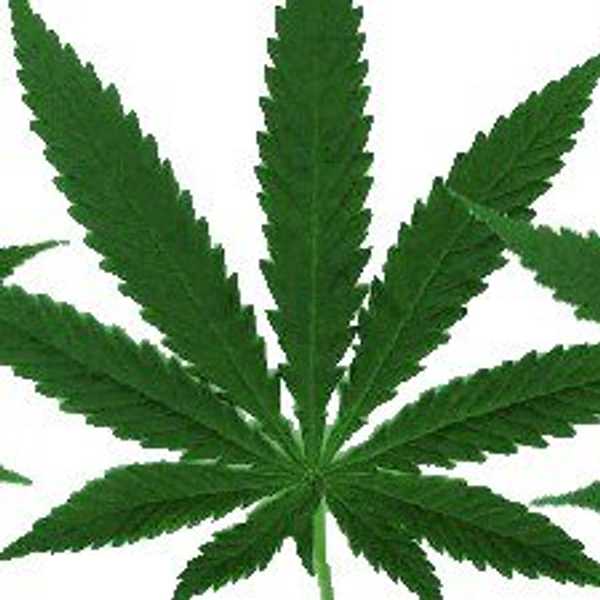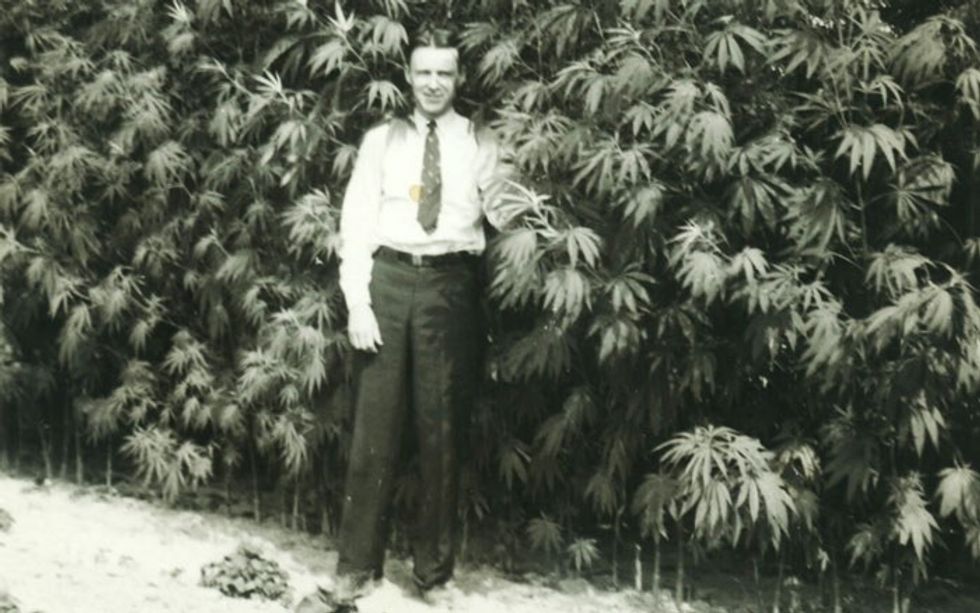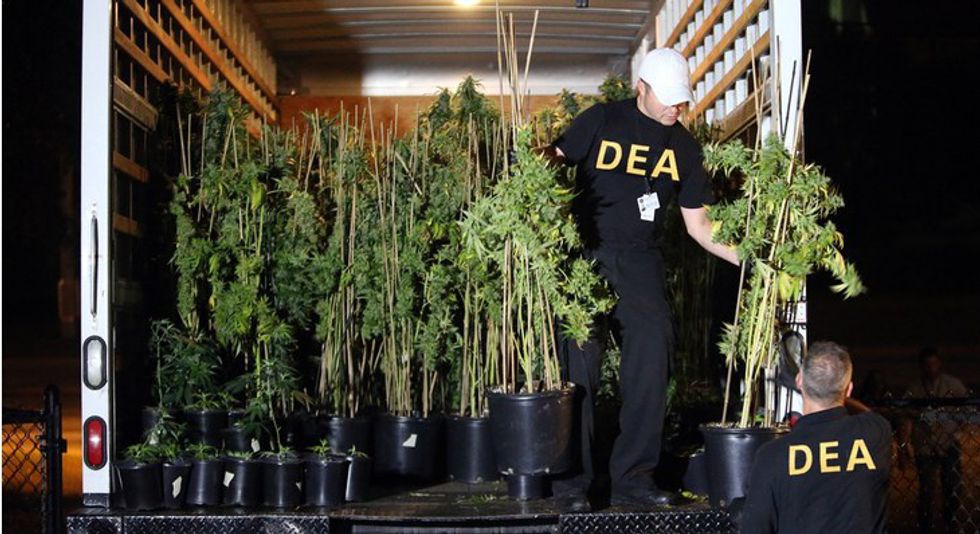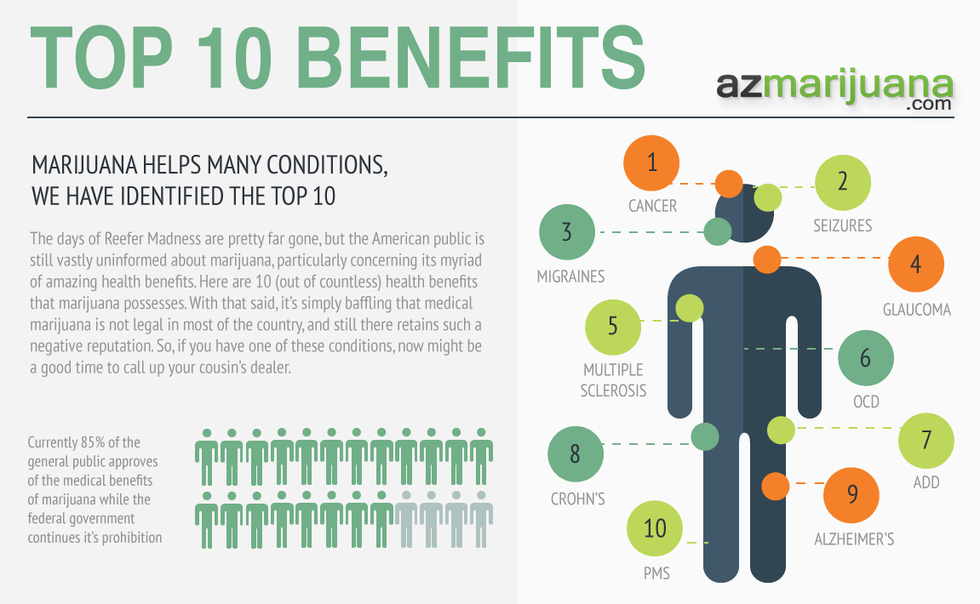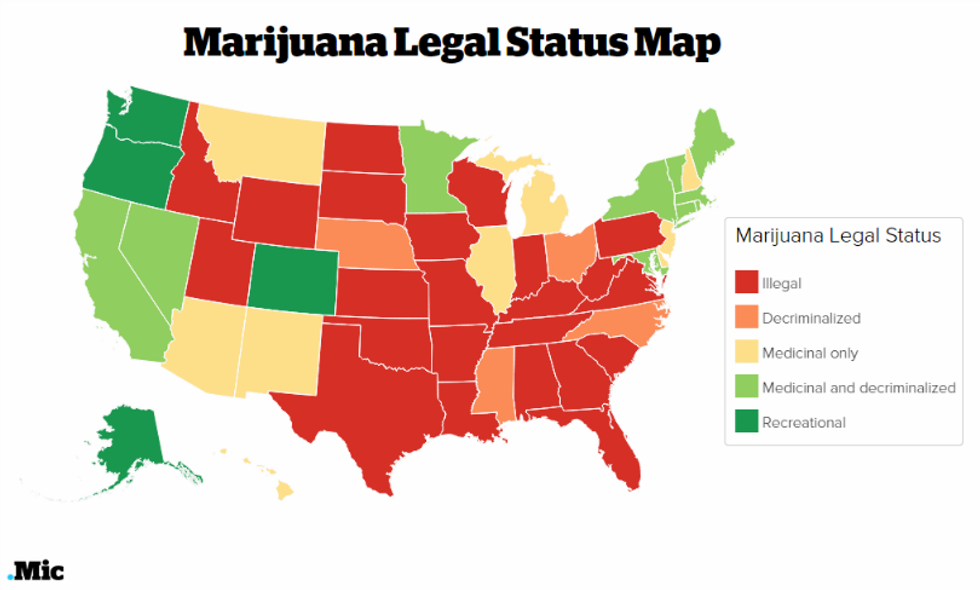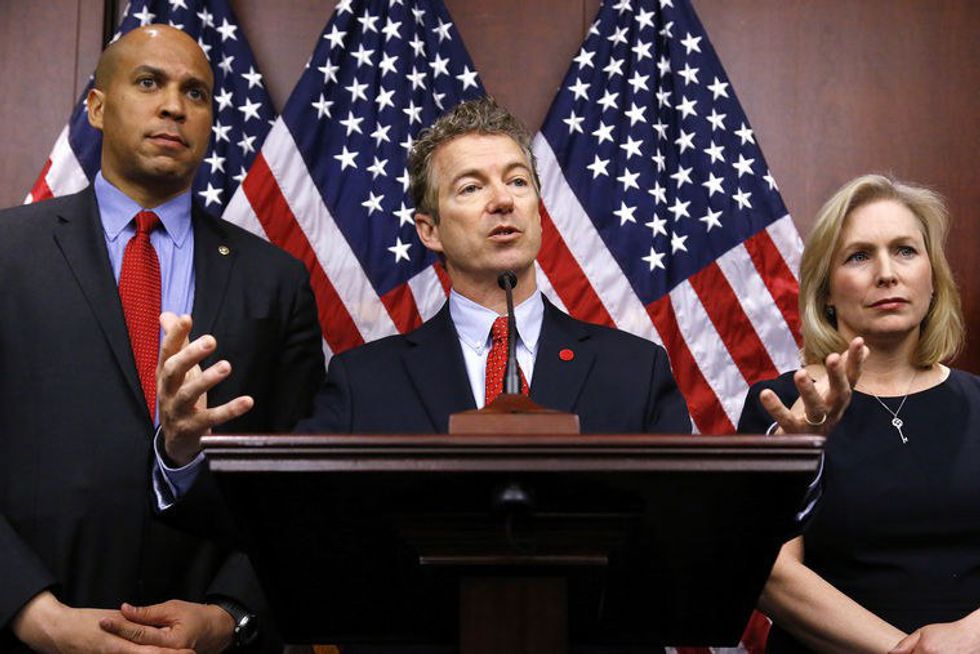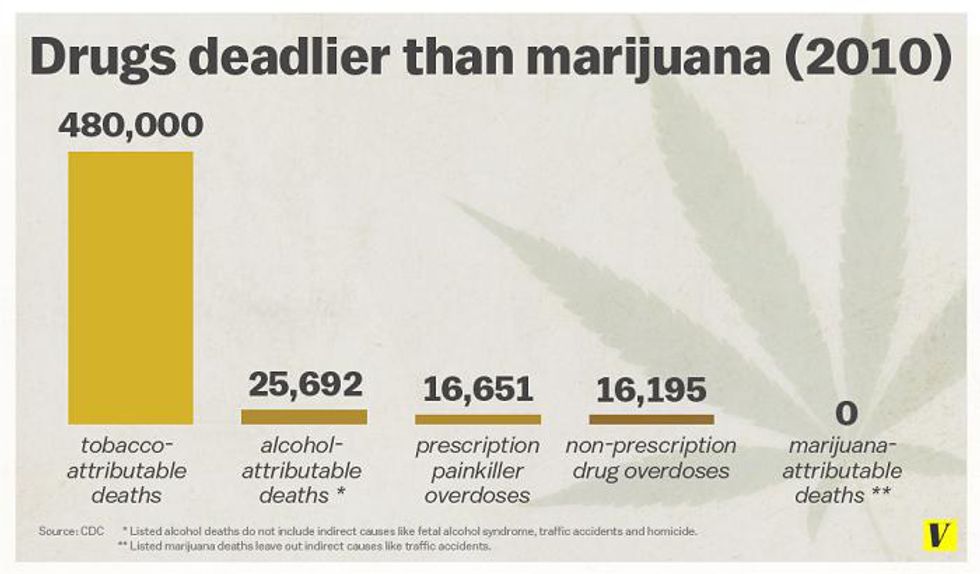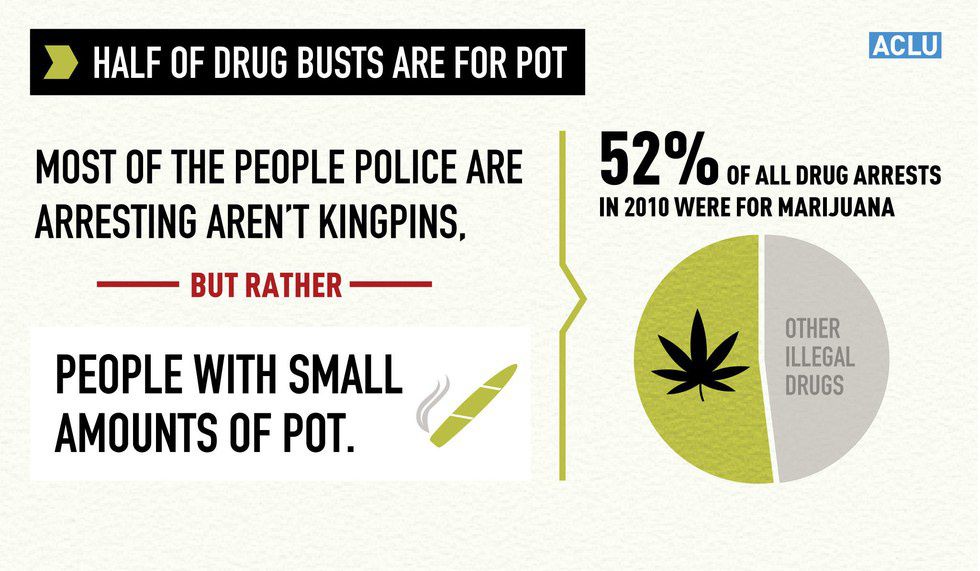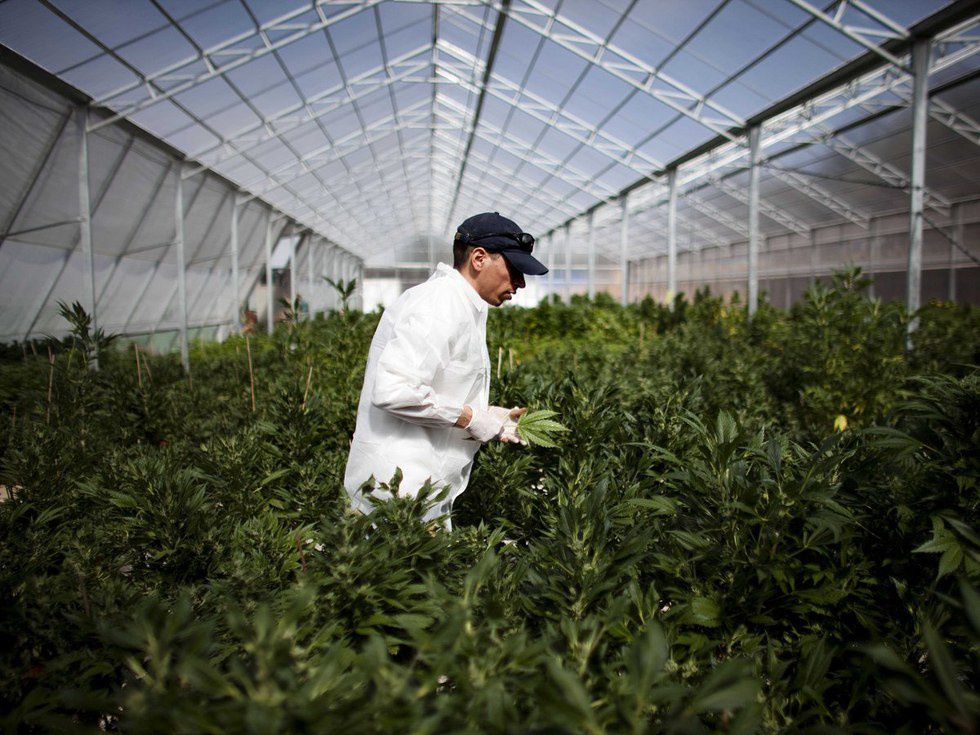Cannabis legalization may be one of the most controversial proposals in the US currently. Among different political parties, economic and health statuses, age groups, races and ethnicities, etc., cannabis use is prevalent. According to the 2014 National Survey on Drug Use and Health, 22.2 million individuals admitted to using marijuana in the past month, making it the most commonly used illicit substance in the country. However, the extent of the drug’s usage appears to have made minuscule impacts on its illegal status under federal law. It also probably does not help that the most vocal advocates of cannabis legalization tend to be liberal Democrats, and the most vocal opposition tends to be conservative Republicans. These contrasting viewpoints, from my perspective, seem to make it even harder to have honest and open discussions about the potential for cannabis legalization in this country.
I intend to delve deeper into why cannabis has remained illegal in the US, the arguments for potential benefits and detriments of making it legal at the federal level, and what I predict will be the outcome of the drug’s legality. First, allow me to clarify the distinction between the terms “cannabis” and “marijuana.” Cannabis refers to the entire plant, including the plant stalks, oil, and cake from the seeds of the plant. Cannabis contains cannabinoids, natural compounds with multiple useful applications. While cannabis is useful as a food, medical, and personal health substance, the plant has many industrial uses as a raw material as well.
Over the past 100 years in the US, a variety of the plant, known as “hemp,” was widely used to make carpets, rope, clothing, paper, etc. as a stronger alternative to cotton and tree-paper. However, the term “marijuana,” adopted from the Spanish word “marihuana,” was originally used by prohibition supporters in reference to only one of cannabis’ functions: its psychoactive effects. Modern day uses of the term, from my perspective, tend to also reference this function, but sometimes the two terms are used interchangeably.
In the US, cannabis is classified as a Schedule 1 drug, meaning that the substance has no accepted medical use and has a high potential for abuse. Other drugs within this classification include heroin, quaaludes, LSD, and ecstasy. The Drug Enforcement Agency (DEA) authorizes this categorization, among other functions, and has served as an obstacle for cannabis legalization.
Back in early August, the DEA rejected two petitions to reschedule marijuana, expressing that cannabis has "no currently accepted medical use and a high potential for abuse.” Of course, this decision drew criticism from many liberals, but not necessarily just because it seems unfair. You see, the DEA made this decision based on scientific and medical evaluations from the US Food and Drug Administration (FDA). According to them, the FDA has the “most appropriate way to conduct research on the medicinal uses” of cannabis.
However, scientific studies and research on the plant must be approved by these two federal agencies, and sometimes the National Institute on Drug Abuse (NIDA). The only institution with a license to grow cannabis for research purposes is the University of Mississippi, which it has held since 1968 with a focus on the drug’s harms and potential for abuse. Back in April, the DEA finally approved research from Dr. Sue Sisley, a psychiatrist who seeks to study cannabis’ potential to treat veterans suffering from PTSD. This will be the first federally-approved study of its kind in the US.
Although the DEA and NIDA have previously expressed the lack of an accepted medical use for cannabis, mainly on the basis of large-scale clinical trials which have been restricted by these same agencies, there have been multiple reputable, scientific studies displaying medicinal benefits of cannabis. Some of these benefits include treatment for small symptoms like nausea, vomiting, pain, and lack of appetite, and more serious conditions like glaucoma , cancer, epileptic seizures, arthritis, multiple sclerosis, irritable bowel syndrome, PTSD, Lupus, etc.
However, federal regulations tend to hinder further positive studies of cannabis. According to famous neurosurgeon and CNN chief medical correspondent, Sanjay Gupta, only 6% of studies on marijuana analyze its medicinal properties, and 93% of studies have the specific intention of investigating the harms of the drug. Gupta is only one of many health professionals who has changed his mind in favor of medical marijuana for multiple reasons.
According to Rick Doblin, founder of the Multidisciplinary Association for Psychedelic Studies and financial supporter of Dr. Sue Sisley’s research, the National Institute on Drug Abuse's monopoly on study-grade marijuana is “the last political obstacle in front of making marijuana into a medicine."
At the state level, cannabis has been viewed with much more attention to medical organizations outside of federal agencies. Around 25 states have legalized cannabis use for medicinal reasons. Only four of these 25 states have legalized the drug for recreational use, ironically including Washington, D.C., the capital of the US and arguably the hub of most federal deliberations and decisions. Some states have even decriminalized small amounts of cannabis, so that less individuals are incarcerated for such small offenses.
For some, the opposing laws at the federal and state levels can be confusing. As aforementioned, marijuana use, possession, and trade is illegal at the federal level. This is the reason why the booming cannabis industry in California is an all cash business; cannabis businesses cannot use federal banks to make transactions. To help manage these conflicting laws, the Department of Justice sent out a memo to prosecutors in 2013 to express that prosecuting state legal medical marijuana cases is not a priority. As well, as of this year, many federal agencies have issued guidelines and policy memos as they relate to medical marijuana.
In a bipartisan effort to end the conflict, in 2015, Senators Cory Booker, Rand Paul, Kirsten Gillibrand, and House Representatives Steve Cohen and Don Young compiled multiple medical marijuana bills. They formed the Compassion Access, Research Expansion, and Respect States (CARERS) Act, the most comprehensive legislation of its kind. The legislation seeks to remove cannabis’ classification as a Schedule 1 drug, protect patients in states where medical marijuana is legal, expand the means for medical and scientific researchers to study cannabis for its therapeutic uses, and address the banking issues where the cannabis industry suffers. In addition, the Act even includes a breakdown of the DEA/NIDA monopoly on cannabis research, further proposing an expanded number of federal, government-approved grow operations.
While Congress has until the end of 2016 to pass or reject this legislation, Canada already has plans to legalize recreational use of cannabis in 2017. Our northern neighbor’s Liberal Party-run government plans to legalize the drug next Spring. After all, polls show that Canadians are largely in support of cannabis legalization. A 2016 Nanos Research poll showed 68% of Canadians support cannabis legalization. So it is expected that they were bound to legalize cannabis then, right?
However, the same appears to be true for the US. According to a 2015 Gallup poll, 58% of Americans support legal marijuana use, an all-time high for a trend that has been increasing for the past 46 years. As well, a recent Quinnipac University poll showed that about 54% of participants said that cannabis should be made legal in the US. 89% of participants said that people should be allowed to use medically prescribed cannabis.
So, with majority support of cannabis legalization in this country, one may wonder why cannabis is still illegal anyway. If you talk to some conservatives, they may deny medicinal uses, or just highlight the negative side effects that an individual could possibly experience while high on marijuana. These include dizziness, shallow breathing, dry mouth, slow reaction time, paranoia and anxiety, short term forgetfulness, random thinking, etc. Aside from the health benefits of cannabis, a liberal might point out the positive recreational effects of the drug. These include increased creativity, heightened senses, euphoria, stress relief, sleep, etc.
There is also the topic of addiction, which many opponents of cannabis tend to readily proclaim. Yes, marijuana can cause addictions, just as video games or pornography can as well. However, there is no directly addictive component in the drug, unlike nicotine in tobacco, for example. This is the reason why many cannabis legalization supporters dismiss assertions that marijuana is an addictive substance that is prone to abuse.
There is, however, one objection that seems to cross the boundaries of political parties and ideologies: why are alcohol and tobacco legal, if they are more harmful than cannabis? According to the World Health Organization, smoking tobacco kills about 6 million people annually, including 600,000 second-hand smokers. It also causes heart attacks, strokes, emphysema, and cancer in multiple areas of the body. According to the Center for Disease Control (CDC), alcohol kills 2.5 million people annually. It is also prone to abuse and one can overdose on the substance. In comparison, according to the CDC, no individuals have died from marijuana overdoses. As well, individuals who died in car accidents while under the influence of marijuana tend to also be under the influence of other substances like alcohol.
So, with such compelling evidence displaying how harmful alcohol and tobacco are in comparison to cannabis, why is cannabis illegal? According to Steve Fox, director of public affairs for the National Cannabis Industry Association, the answer is government propaganda and cultural bias. Propaganda against marijuana in the US stems back to the 1930s, with films such as Reefer Madness, which depicted marijuana as a cause of rape, murder, and insane actions.
This may also be the reason why older generations of conservatives have stronger biases against cannabis legalization; the stigma against the drug has become highly ingrained in American culture. As more research is conducted and certain myths or theories about the drug are disproved, such as its status as a gateway drug or how it kills brain cells, these cultural biases will likely disappear.
There also may be a level of convenience surrounding the illegality of marijuana. There have been many arguments highlighting the failure of the war on drugs, specifically in reference to marijuana. One argument refers to the racial disparities in marijuana-related arrests. According to the American Civil Liberties Union, among the 8.2 million arrests in the US between 2001 and 2010, 88% were for having marijuana. As well, whites and blacks use the drug at about the same rate; it is slightly higher for whites. However, blacks have been four times more likely than whites to be arrested for marijuana possession. Some view the drugs continued illegality as a means for law enforcement to further oppress or target certain minorities.
Another reason why cannabis is still illegal at the federal level may be the influence of alcohol, tobacco, and pharmaceutical companies. Among the documents and emails leaked in the 2016 Democratic National Committee scandal, Wikileaks also exposed paperwork regarding cannabis legalization and the alcohol industry. The Wine and Spirits Wholesalers of America (WSWA) were found to have sent advertisements to insiders in Washington to convince them of the detriments of marijuana legalization. The WSWA intends to protect the financial interests of the alcohol industry, so it makes sense that they would actively work to foil the progress of a newer, competitive industry.
However, the WSWA is not alone in its intents. Pharmaceutical and tobacco companies also fund anti-drug campaigns to weaken support for the cannabis industry. Interestingly enough, some tobacco companies have been found to have previously considered using cannabis in their products. Now, marijuana legalization has already occurred in close to half of the country. It is a threat to big tobacco and big pharmaceutical companies.
Yet, you still might wonder. Beyond all of the politics and corporate goals, what would cannabis legalization even look like for the industry? It is such a hotly debated topic, but there is compelling evidence that legalization could have both positive and negative outcomes.
Some cannabis legalization supporters push that the cannabis industry already brings new job opportunities and rakes in billions of dollars in revenue, which is especially good for small-time and local growers and upcoming entrepreneurs. Yet, there are arguments that legalization would actually hurt these smaller businesses because it would allow for bigger companies, like pharmaceutical companies, to legitimately permeate and eventually dominate the market.
From my perspective, cannabis legalization could take many more years if it is rescheduled. According to Bill Piper of Drug Policy Alliance, this year’s election is critical to any change in cannabis legislation. With pressure from state laws and potentially even other countries, he believes that either the next administration or Congress may make a radical decision to legalize cannabis.
The future of cannabis legislation is clearer and appears more progressive than past decades, but there are still many steps necessary for the drug to make drastic legal impacts at the federal level. Although many optimistic business owners and members of the marijuana culture may expect more imminent changes that mirror those of other countries, the path to cannabis legalization holds much uncertainty.

